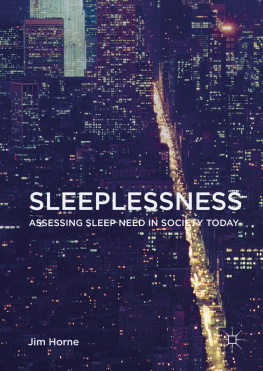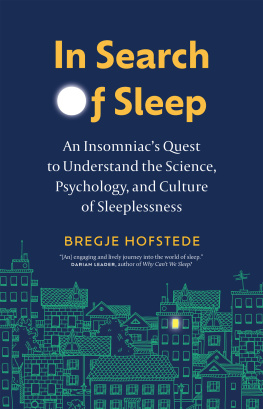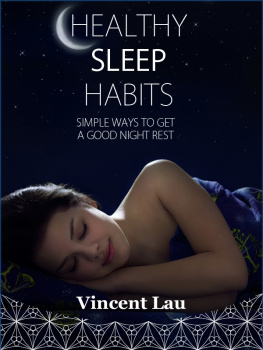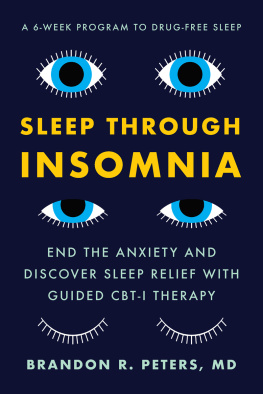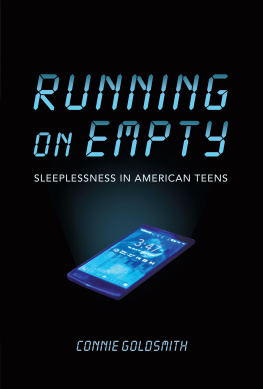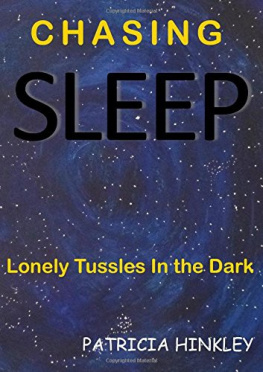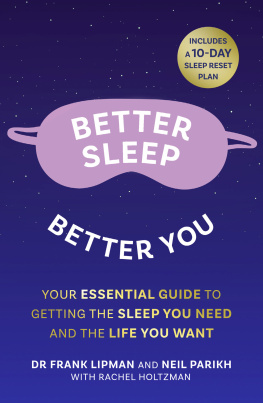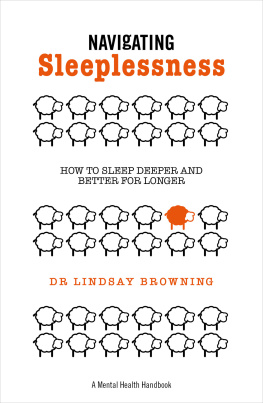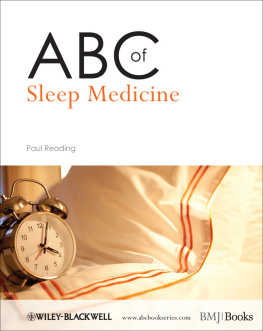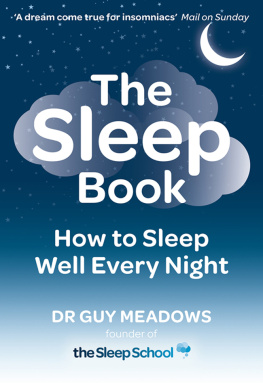1. Insomnia
1.1 Sleeplessness: Lessons from History
Literature owes much to Charles Dickens poor sleep when, on occasions, he would get out of bed and tramp the nighttime streets of London, encountering the people and places that gave him so many inspirations for his novels and for his conceptions of the tortured minds of many of his characters. His remarkable accounts of these wanderings and wonderings, which he called his houselessness, are described in his little known book of Night Walks, which might be seen as a positive side to insomnia and how he turned this affliction very much to his advantage. After walking for many miles, he would return home at sunrise, to his northwards pointing bed, to sleep exactly in the middle, placing his arms out and checking that his hands were equidistant from the beds edge. At other times, when he could not sleep, he would stand at his bedside until feeling chilly, shake up and cool his pillows and bedclothes, then get back into bed. In fact, unlike the rest of his methods this latter technique is based on sound science as the body indeed needs to cool in order to ensure more rapid sleep onset.
Nevertheless, his was a magnetic personality in more ways than one as, away from home, he would realign the bed to the north, which is why he always carried a compassto foster his creativity as he also had to be facing north before he would put pen to paper. He believed in mesmerism (also called animal magnetism), thought to be linked to real magnetism, as Mesmer, himself, would use pieces of magnetic iron ore (lodestone) as part of his mesmeric treatments, even for curing insomnia. But this was too much for Dickens, who dismissed such use of magnets as unnatural. Nevertheless, lodestones embedded in pillows were a very popular cure-all amongst the Victorians. But we shouldnt mock, as even in the 1960s, a magnetic field deficiency syndrome, with symptoms including insomnia, was a common diagnosis in Japan, and even today, magnetic pillows and mattresses continue to be advertised to alleviate insomnia.
However, Dickens, who died in 1870, couldnt really be called an insomniac as the term was seldom used at the time. Yes, he suffered from insomnia, but then it was called sleeplessness, and another 30 or so years elapsed before insomnia became the word of choice, coinciding with the development of new medicines and changes to medical practice (more about this, later).
Until then, the obvious remedies for sleeplessness were either alcohol (gin for the poor and whisky or brandy for the wealthier), or the readily accessible and cheaper fix of opium in one form or another, with the most popular being laudanum, a tincture of alcohol and morphine. Being unrestricted, it could be bought almost anywhere. In fact, so popular was opium, that the British had largely gone to war with China, in the opium wars, to maintain the lucrative supplies. Byron, Shelley, de Quincey, Coleridge, Poe and even William Wilberforce were opium-eaters, using the drug not just as a sleeping aid, but also for pleasure or out of addiction. Meanwhile, cannabis, also easily available, was regarded to be more dangerous than laudanum, until it became known that Queen Victoria had been prescribed it by her personal physician, Dr JR Reynolds, to assist sleep during menstrual cramps. Some years later, in 1890, he reflected in an article for the Lancet, that cannabis was one of the most valuable medicines we possess for treating insomnia.
For those after a milder treatment for their sleeplessness, there was the herb valerian, named after the sleepless Roman emperor Publius Licinius Valerianus, who advocated its use throughout his empire. Although, pharmacologically, it had only a modest soporific effect, it benefited from having such an influential user and patron, and became the medicine of choice for the sleepless Romans, especially when coupled with the power of such a celebrity endorsement. Human nature being what it is, such placebo effects remain with us, more than ever with todays over-the-counter remedies, including modern prescription medicines that are truly hypnotic, but also have additional placebo effects.
But to return to the Dickensian era, where there was good insight into insomnia, albeit quaintly amusing and still relevant today, lamentations about sleeplessness abounded in the then medical literature. For example, an editorial in the BMJ of 29 September 1894 (p. 279) bemoaned, The subject of sleeplessness is once more under public discussion. The hurry and excitement of modern life is held to be responsible for much of the insomnia of which we hear; and most of the articles and letters are full of good advice to live more quietly and of platitudes concerning the harmfulness of rush and worry. The pity of it is that so many people are unable to follow this good advice and are obliged to lead a life of anxiety and high tension .
The editorial went on to review various attested treatments, pointing out that different remedies suit different people, to the extent that one apparently effective remedy can be the exact opposite of another. For example: hot baths versus cold baths, hot drinks versus cold drinks, long walks (in bare feet) versus sitting whilst attempting steady but monotonous counting or the more difficult feat of thinking about nothing. The article concluded with what must be the most extraordinary account of a cure, originally taken from the Glasgow Herald :
Soap your head with the ordinary yellow soap; rub it into the roots of the hair until your head is just lather all over, tie it up in a napkin, go to bed, and wash it out in the morning. Do this for a fortnight. Take no tea after 6 pm . I did this, and have never been troubled with sleeplessness since. I have lost sleep on an occasion since, but one or two nights of the soap cure put it right. I have conversed with medical men, but I have no explanation from any of them. All that I am careful about is that it cured me .
The editorial wisely ends with the comment that we cannot help thinking that some of our sleepless readers would prefer the disease to the cure. But if any should like to try it, may we advise that they should first, at any rate, follow that part of the advice which relates to the tea, and leave the soap part as a last resource .
The interesting word, here, was disease , as this was still a time when the mind was somewhat of a little understood, embarrassing enigma, largely ignored by physicians and well before the era of Freud and his contemporaries. None of the numerous remedies for sleeplessness involved anything along the lines of what one might call psychological therapy, even though stress and a troubled mind were well known to be the common basis, as reflected over 30 years earlier, in another insightful BMJ editorial (9 November 1861, p. 489), entitled On Sleeplessness, by Dr James Russell:
In treating these cases [of sleeplessness], the key to success lies in the management of the patients mind, and unless we recognise the large share which is taken by mental disorder in producing and perpetuating the various and puzzling symptoms which present themselves, we shall not only fail in our object, but shall be in danger of actually aggravating the malady. Much may be done by soporifics and tonics; but our chief attention must be directed to regulating and strengthening the mind, otherwise our medicines will only serve to fix the patients attention more closely upon the symptoms, and induce reliance upon external measures rather than upon self discipline . The treatment required is suggested by the nature of the malady. We find self-control diminished, the will inert, the emotions dominant, the thoughts of the sufferers occupied entirely about themselves, and the idea of disease the one subject engrossing their attention; we find every sensation registered, every fresh complaint welcomed and symptoms which at first seem to belong to organic disease are discovered, by further experience of the case, to have their origin in nothing but exaggerated sensitiveness or disordered fancy The task of ministering to such a condition is no light one; and it is hard to say whether the discipline is more severe to the patient or to the attendant

